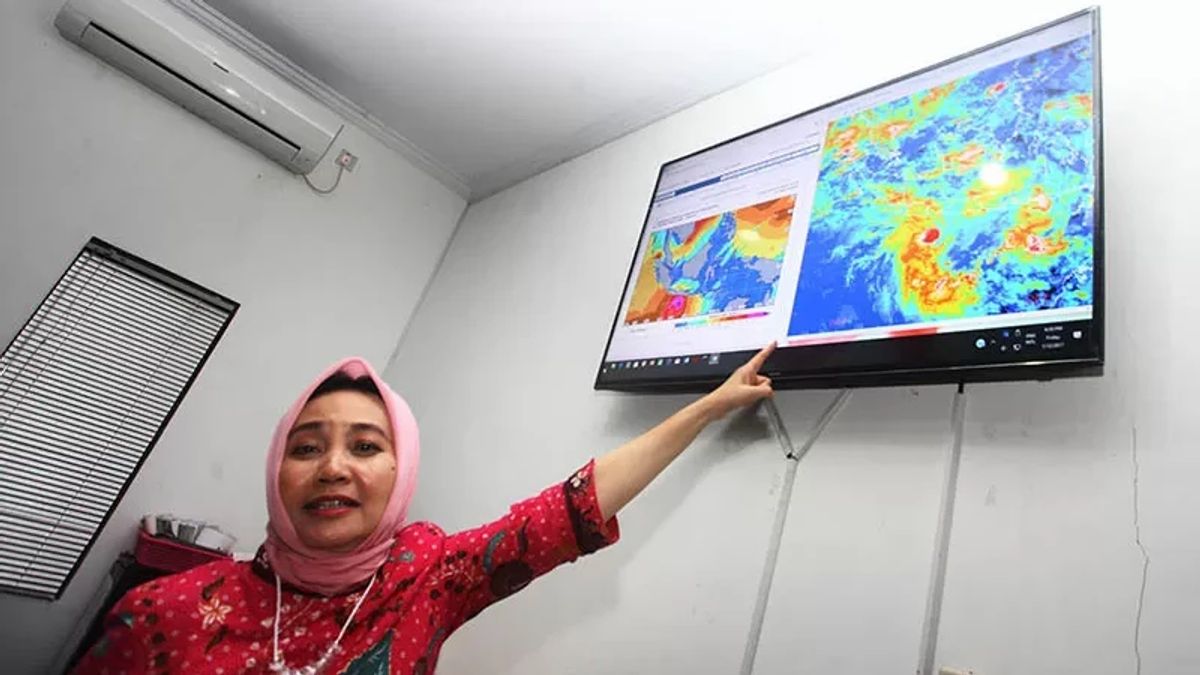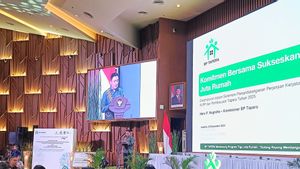SUMBAR - The Meteorology, Climatology and Geophysics Agency (BMKG) assesses that concrete actions to control climate change from the government and society are important to curb the pace of global warming for the sustainability of future generations.
Head of the Meteorology, Climatology and Geophysics Agency (BMKG) Dwikorita Karnawati said that forms of contribution can be made starting from easy ones such as not littering, applying Reduce, Reuse, Recycle (3R), planting trees, walking, cycling, or using public transportation, and energy saving.
"Especially for waste, the impact is very large because it contributes greatly to greenhouse gas emissions in the form of methane (CH4) and carbon dioxide (CO2) emissions. Therefore, even though it looks trivial, the concrete step has contributed greatly to curbing the rate of climate change," he said, quoted by Antara.
Dwikorita said this during the commemoration of the 73rd World Meteorological Day (HMD) which was held at the Bukit Kototabang Global Atmospheric Monitoring Station (GAW), West Sumatra (West Sumatra), Monday, March 20.
BMKG noted that overall 2016 was the hottest year for Indonesia, with an anomaly value of 0.8 degrees Celsius during the 1981-2020 observation period.
The year 2020 ranks second in the hottest year with an anomaly value of 0.7 degrees Celsius, with 2019 in third place with an anomaly value of 0.6 degrees Celsius.
The hottest condition, said Dwikorita, was triggered by a global warming trend implemented by the El Nino climate anomaly.
Dwikorita added, due to climate change, extreme events often occur, especially drought and floods.
If previously the span of events was around 50-100 years, now the time span is getting shorter or the frequency is getting more frequent with higher intensity or longer duration.
"The real example in Indonesia is the emergence of tropical cyclone Seroja which caused flash floods and landslides in East Nusa Tenggara (NTT) in April 2021. Even though the phenomenon of cyclones can be said to be very rare to form in tropical areas such as Indonesia. But over the last 10 years, tropical cyclone events have become increasingly common," he said.
Most recently, he continued, was a landslide that occurred in Natuna which resulted in the death of dozens of people.
"If this situation continues, then Indonesia will be much more frequent hit by extreme weather and disasters that not only cause material losses but also casualties," said Dwikorita.
The English, Chinese, Japanese, Arabic, and French versions are automatically generated by the AI. So there may still be inaccuracies in translating, please always see Indonesian as our main language. (system supported by DigitalSiber.id)








